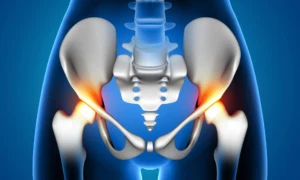Introduction:
Pain is a constant in the fabric of human existence; it is the thread that unites us in our shared experience of suffering. Pain of any kind, whether it be psychological, emotional, or physical, weighs heavily on the soul and creates uncertainty and hopelessness. This article examines the weight of sorrow, the load we bear, and the fortitude needed to bear this load bravely and gracefully.
The Nature of Pain:
A range of emotions and sensations with varying degrees of intensity and duration make up the complex experience of pain. It can take the shape of bodily discomfort, emotional suffering, or existential torment, each of which leaves a distinct psychological mark. Injuries, illnesses, traumas, losses, or unfulfilled desires can all result in pain, which can have an impact on all facets of our lives.
The weight of pain—the hefty load it throws on our bodies and minds—is one of its distinguishing features. Pain covers our shoulders like a leaden cloak, engulfing us in its weight and draining our spirit and strength. It is a weight that is challenging to carry but unavoidable—a continual reminder of our frailty and death.
Carrying the Burden of sorrow:
Carrying the weight of sorrow calls for a great deal of bravery, resiliency, and strength. Silently borne in the depths of our hearts and minds, it is a weight that is frequently carried alone. Even so, we keep going regardless how much pain we’re in, finding the inner power and will to get us through the worst of situations.
The sensation of estrangement and loneliness that frequently accompanies bearing the weight of sorrow is one of the biggest obstacles. Pain may be a very private and intimate sensation that is hard to talk about or share with other people. Because of this, we could feel cut off from those around us, be unable to express how much our suffering hurts, or find comfort in other people’s support.
Furthermore, carrying a heavy load of pain can negatively impact our mental and emotional health, resulting in depressing and dismal feelings. It might weaken our sense of purpose and value in ourselves, leaving us feeling lost and confused. However, even in the face of such hardship, we are able to discover within ourselves the fortitude to continue, to endure hardship and agony.
Discovering Purpose Despite Adversity:
Even when our suffering is heavy, there is still room for development, change, and rejuvenation. We find our actual strength and endurance via the trial by fire of suffering; we are able to draw from reserves of bravery and tenacity we were unaware of. We can be shaped by pain into more empathetic, wise, and compassionate human beings.
Understanding that suffering has a purpose is essential to finding meaning in the face of suffering. Suffering can be excruciating and intolerable, yet it can also serve as a catalyst for development and transformation. We develop a deeper understanding of who we are, learn to feel empathy and compassion for others, and discover meaning and purpose in life as a result of our hardships and suffering.
Furthermore, reinterpreting our experiences via the prism of purpose is frequently necessary to discover meaning in the midst of suffering. We might choose to regard pain as a chance for personal development and self-discovery rather than as a challenge to be conquered. We can make our suffering a source of resilience and strength by facing it head-on with bravery and compassion, as well as by looking for chances to grow and connect.
Techniques for Bearing the Weight of Pain:
Develop Self-Compassion: Show yourself love, compassion, and acceptance, especially when you’re going through difficult or upsetting times. To take care of oneself and develop resilience and inner serenity, try self-soothing methods, positive affirmations, or self-care activities.
Seek Assistance:
Seek assistance and direction from dependable family members, friends, or mental health specialists. Openly and honestly communicate your struggles to others, letting yourself be vulnerable and receptive to support and encouragement. Look for tools and support networks that can offer compassion, affirmation, and direction for managing your suffering.
Find Your Purpose and Meaning:
Identify and pursue chances for personal development, purpose, and relationships when faced with hardship. Seek to find ways, through lobbying, action, or creative expression, to use your grief as a catalyst for good change and transformation. Choose interests, pastimes, or endeavors that give you happiness, contentment, and a feeling of direction, and give them your all.
Conclusion:
Carrying the weight of pain pushes the boundaries of our fortitude and resiliency. Even still, development, transformation, and rebirth are possible despite the darkness of our circumstances. We can come out of our suffering stronger, wiser, and more compassionate than before if we can bear the weight of suffering with courage and grace, ask for help and support from others, and discover meaning and purpose in the face of hardship. May the path of bearing the weight of pain bring us all comfort and inspiration, and may we all emerge from our battles into the light of dawn, rejuvenated and changed.






































